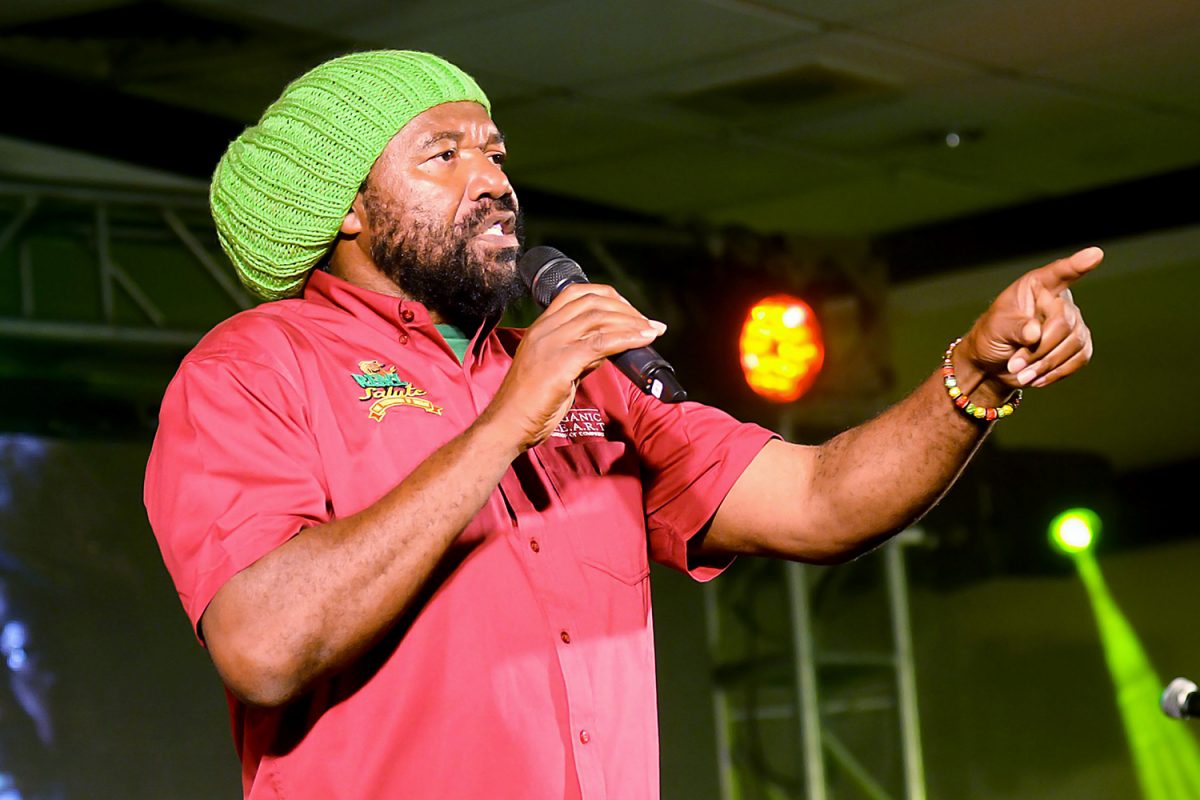Tony Rebel Says Rastafari Remains Relevant In Reggae Despite “California Takeover”

Reggae/Dancehall veteran Tony Rebel says in spite of what is being touted as the California takeover of Reggae music, the influence of Rastafari on the genre remains relevant, and Jamaican acts still remain standard-bearers.
“The California takeover is a reality, but Rasta and Reggae is still relevant. Rastas is still not only on Reggae enuh. Rasta is all over the world…,” the Teach The Children artist told veteran entertainment journalist Anthony Miller during an interview on Television Jamaica’s The Entertainment Report.
“Reggae might look like it is down, but it not so much down. It is because the California segment is blowing up. But it is just a time. It really means Reggae is wholesome; Reggae is big, so therefore people can always inject and take a piece of it. But we are always there,” Tony Rebel told Miller.
When Miller posited: “Can we learn from them though, because they seem to have a lock on how to get more out of it from a commercial point of view,” Rebel said that the oftentimes all-white American Reggae bands, which tend to be based on the US West coast, had several advantages over their Jamaican counterparts.
“The white privilege is there for them and also they are organised and they have their own venue and they live in America. America has about two-thirds of the music population. So once you are established in America, then you’re good,” he explained.
The issue of Caucasian non-Jamaicans recording Reggae, which is seen as a genre inextricably linked to Rastafari, a religious movement that pays homage to a Black God, has been a hot topic from as far back as 2011.
In November that year, NPR had published an article titled Non-Jamaican Reggae: Who’s Making It And Who’s Buying It , which affirmed that “lately, a crop of artists from places like Hawaii, California and Italy are proving that hit Reggae can come from anywhere” but in the process, are “raising some complex questions about culture and ownership”.
NPR had noted that there was a new generation of reggae singers “who are not from the birthplace of reggae music” and “are enormously successful”, often playing to up to 40,000 people at European festivals and up to 4,000 people per night in clubs.
The article had cited as a prime example Italian Reggae singer Alborosie as one person who had not only learned Patois but also became a Jamaican citizen and was the first white artist to be distributed by Bob Marley’s label, Tuff Gong.
“The globalization of reggae stirs up a familiar debate around cultural politics. From jazz to rock to hip-hop, white artists have negotiated the thorny boundaries of performing in a genre they didn’t invent. Sicily-born Alborosie says he needed to go to Jamaica and talk the talk (learn Patois),” the article noted, adding that another example was the German Reggae artist Gentleman.
Hawaii and California, NPR said, were the biggest breeding grounds for Reggae bands. iTunes, it said, had even “bestowed its 2010 Best Reggae Album title not on a Jamaican, but on the debut from Hawaiian band The Green”.
Last month, Inner Circle’s bassist Ian Lewis left tongues wagging on social media following a TVJ interview in which he called for the “return of drum and bass” to Reggae music, the unification of the nation’s music stakeholders and pointed out that overseas reggae bands continued to eclipse their Jamaican counterparts on the international stage.
Lewis, who along with his brother Roger, co-founded Inner Circle in 1968, said that the now-outnumbered Jamaicans, the originators of Reggae, ought to unify in order to regain their status by adapting what the American Reggae bands have been doing over the years, through for example, touring together, which has gained them much ground and enlarged their fan base.
“Three to 400 modern Reggae white bands are in America. They have moved their commas now from a hundred or thousand to 300 (thousand); they are doing eight to 10 to 15 thousand combined when they go together. They pound the road; they do 200 shows every year – 40 dollar tickets, not 200 and 300 dollar tickets,” Lewis had said.
“So they are going for the demographic that will come out to listen to what they are playing. They call it Reggae; we might not feel it like how they feel it, but it’s appealing to their demographic…,” he added.
